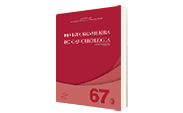Hope, Fear, and Health-Related Quality of Life Perceived by Women with Breast Cancer
DOI:
https://doi.org/10.32635/2176-9745.RBC.2021v67n3.1193Keywords:
Breast Neoplasms/psychology, Quality of Life, Hope, Emotions, FearAbstract
Introduction: The period of diagnosis and treatment of breast cancer is tough, full of uncertainties, and associated with a high morbidity and mortality rate. Objective: To understand the meaning that women with breast cancer under treatment in a university hospital attribute to their experience of fear masked by the feeling of hope and investigate the participants’ perception of quality of life while coping with the disease. Method: Quantitative, qualitative study conducted with 78 women. For the quantitative evaluation, the scores of the Medical Outcomes Study 36 – Item Short – Form Health Survey (SF-36) and the Herth Hope Scale were evaluated. For the qualitative analysis, narratives were conducted with 10 of these women who were analyzed using phenomenological investigation methods. Results: Low scores were detected in the functional capacity and mental health domains of SF-36, which imply in a negative impact on the quality of life and a high index of hope scores, which is a positive factor. Three central classes emerged from 243 segments of the participants’ narratives, through meaningful statements and their corresponding meaning units. Conclusion: The experience of the diagnosis and treatment period includes coping, cognizance of the disease, clinical consultation (doctors, teams), from exaltation to despair, and the paradox between fear and hope. It was discussed the essence of the experience the participants lived and shared in light of the theory of the disease as a rupture of the biographic narrative. The study highlights implications for the teams of physicians, SUS – National Health System coordinators, and other healthcare professionals.









